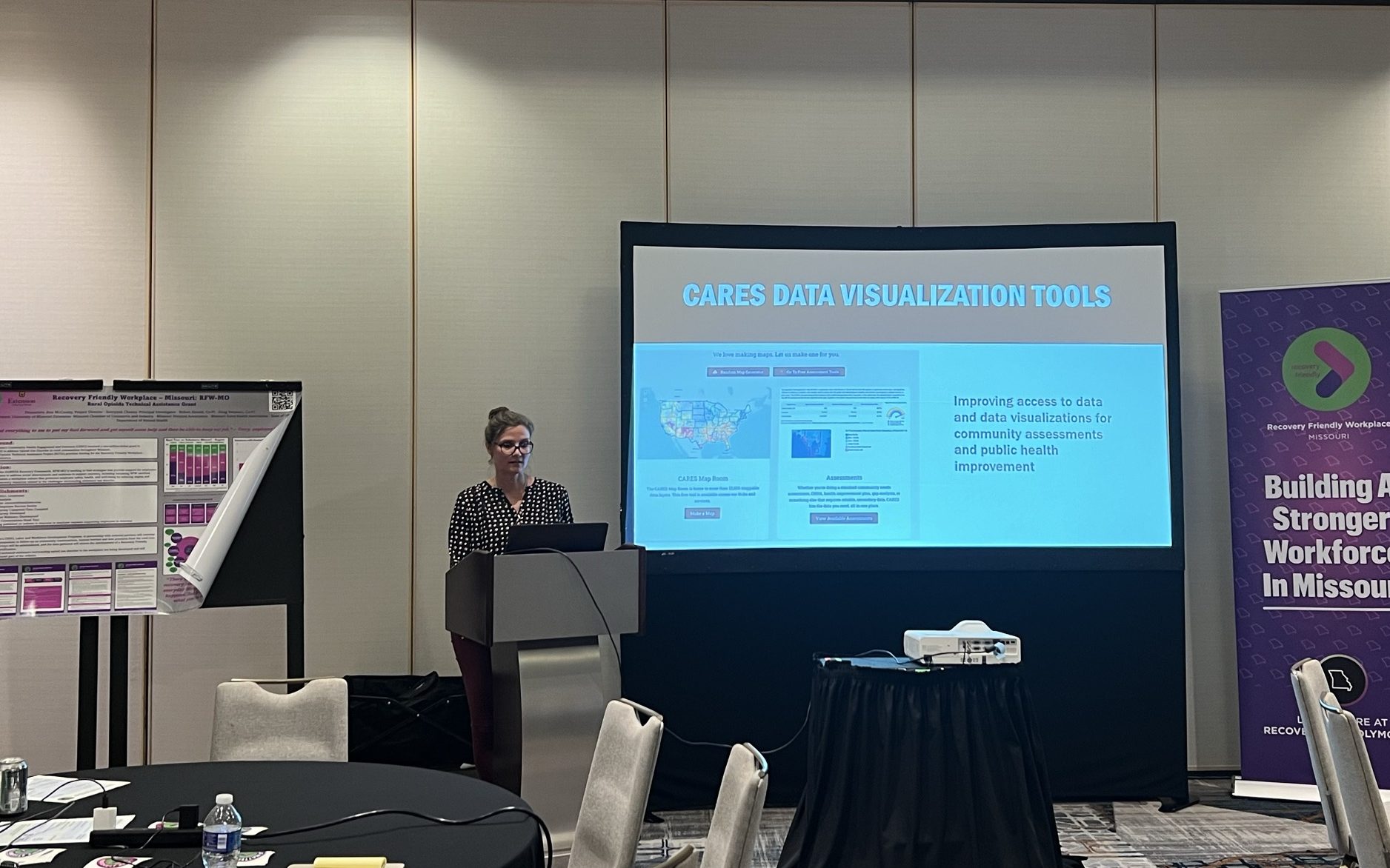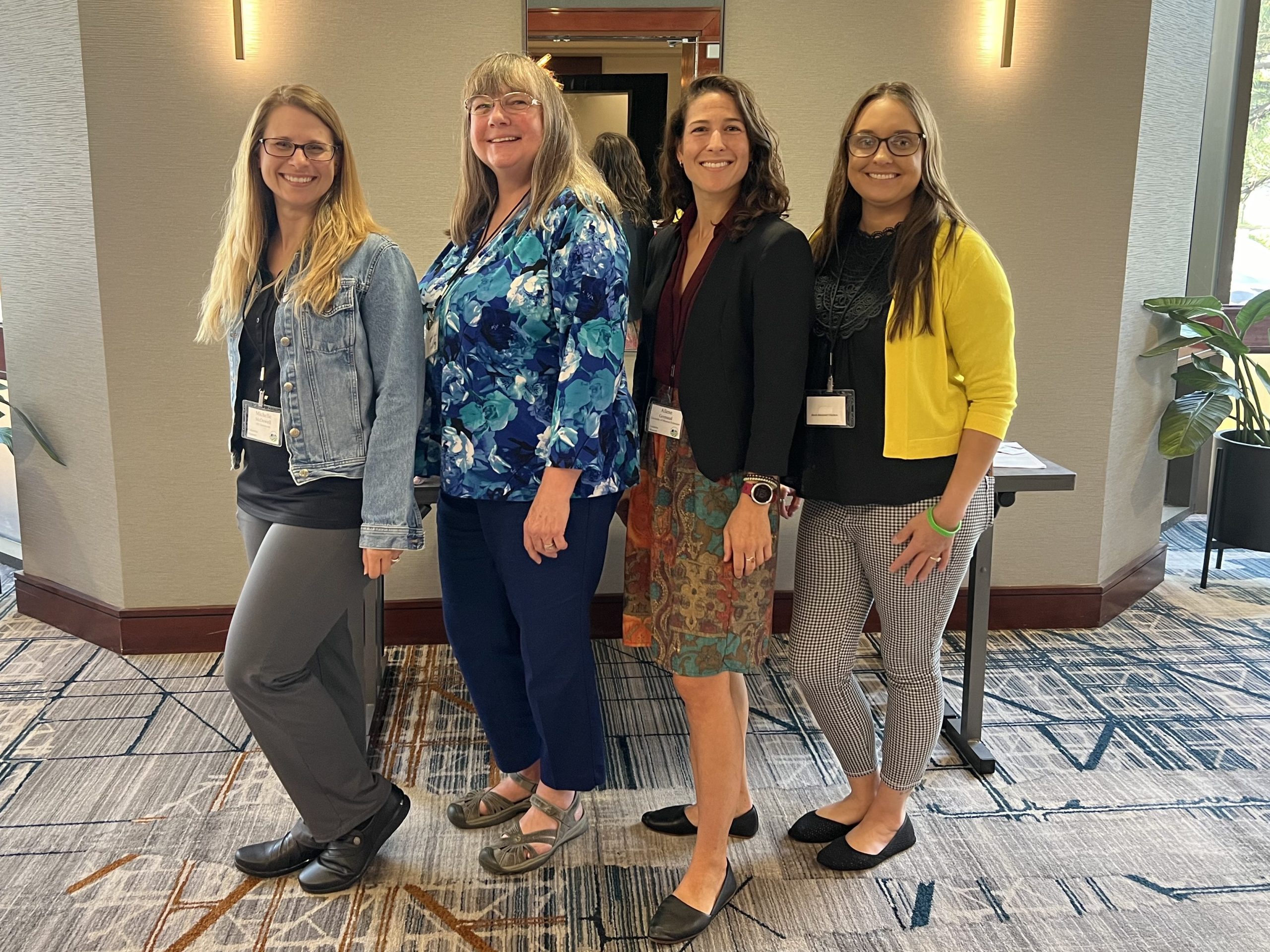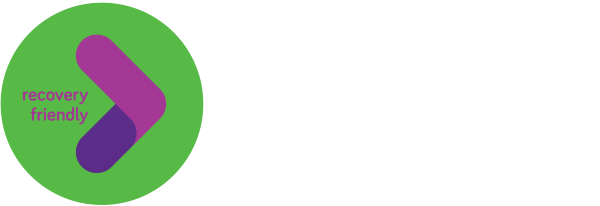The University of Missouri Extension’s office of Community Health, Engagement, and Outreach (CHEO) helped to sponsor the Midwest Rural Opioid and Stimulant Conference and a Recovery Friendly Workplace Pre-conference from September 16 through September 19 at the Overland Park Marriott Conference Center in Overland Park, Kansas. The conference was held in partnership with the Iowa State Prevention Science Institute and supported through the Rural Opioid Technical Assistance Regional Grant from the Substance Abuse and Mental Health Services Administration (SAMHSA). Although participants attended from all over the country, the conference was geared toward attendees from the four-state region, Iowa, Kansas, Nebraska, and Missouri, and included a virtual option.
The three-day program began with a Recovery Friendly Workplace-Missouri pre-conference and roundtable discussion. Ann McCauley, Director of the Rural Opioid Technical Assistance-Missouri (ROTA) grant, welcomed the attendees at the pre-conference, and explained that the new ROTA-R supplemental grant had been funded for another year. She spoke about the potential of receiving a five-year grant when the new grant ends.
The roundtable discussion at the pre-conference was a follow-up from the first state RFW roundtable held in Columbia in June, where businesses discussed updating the RFW website, improving communication, creating a community of practice, and supporting new businesses that become designated in the state. The first roundtable featured a discussion of the Recovery Friendly Workplace (RFW) website. Business leaders in attendance requested a more user-friendly website with access to data and information that would benefit them as they hire and support employees with mental health and substance use disorders.
Angela Johnson, the Assistant Director of the University of Missouri’s Center for Applied Research and Engagement Systems (CARES), did a presentation on the changes being made to help Recovery Friendly Workplaces use data and tools to best support their businesses. Angela discussed the upgrades to the RFW website, and shared efforts to create a searchable resource library that will be housed on the site. Businesses will have access to substance use data by region and county and will be able to access information on issues such as the social determinants of health, business and economic data related to health disparities, and information about maintaining healthy workforces. The new upgrades will also feature an updated interactive map and search engine listing businesses that become designated as Recovery Friendly Workplaces.

Business leaders in attendance were extremely excited about the new website upgrades and the information available to them. Eric Cohen, the Department of Transportation Compliance Coordinator in charge of Project Controls and Operations and the Recovery Friendly Workplace Coordinator at ACE Pipe Company of Kansas City, said,
“The changes to the website will be invaluable to ACE Pipe as we move forward to support employees in recovery and those who suffer from the stigma associated with mental health issues. There’s a wealth of information that will help leadership better understand the problems and issues in our community and give us the resources we have been seeking to address those issues.”
During the pre-conference, business leaders and representatives viewed the new Recovery Friendly Workplace Small Business Development Center (SBDC) Video.

The video was created for use by the SBDCs across Missouri to share information about the Recovery Friendly Workplace program with companies interested in becoming designated. Future plans include creating a recruitment model with the SBDCs that can be used in the other states across the region: Iowa, Nebraska, and Kansas. Attendees at the pre-conference were given permission to utilize the video in their recruitment efforts as they work to encourage other businesses to obtain the Recovery Friendly Workplace designation.
Nichole Dawsey, a consultant with PreventEd, a designated Recovery Friendly Workplace based in St. Louis, led a roundtable discussion of businesses during the pre-conference. Discussion centered around creating a mentorship program for those businesses that have already received the designation, so that they can offer help and support to new designees. Scott Kirchoff, Administrative Director of Hospitality at Citizens Memorial Hospital in Bolivar, said he would welcome the opportunity to host new businesses and allow them to see firsthand what a Recovery Friendly Workplace looks like in action. Plans are being implemented to develop a mentor program for the state of Missouri and to work with a graduate intern at the University to assist with logistics.
Allene Gremaud, Coordinator of Recovery Friendly Workplaces at the University of Missouri Extension, discussed the launch of a new stigma campaign, a flyer for designated businesses designed by FirstCall KC, her work to include all designees on the CHEO newsletter, and the Missouri resources webpage. The stigma campaign includes stickers and posters, which were made available at the conference, and links to a landing page breaking down what stigma is, the importance of reducing it, and steps to take to do so. Sticker and poster images will soon be available on the Recovery Friendly Missouri website within the resources section. FirstCall KC developed the flyer and shared it at the June roundtable. Allene created a template for RFW designated businesses to adapt the flyer to their own businesses and enter their own pictures and information explaining why they’ve chosen to become recovery friendly. The Missouri resources webpage is designed to showcase the resources available in Missouri, the trainings provided by UMSL’s Addiction Sciences Team, the updated recovery housing map overseen by the Missouri Coalition of Recovery Support Providers (MCRSP), and ways to request Narcan or fentanyl test strips by mail.



The luncheon held during the opening day of the conference featured business leaders and employees who work in Recovery Friendly Workplaces in Missouri. Employers spoke of the growth and progress their businesses have made as a result of hiring people in recovery, while employees spoke of the many ways their jobs have contributed to their sobriety. The panel helped to introduce the value of Recovery Friendly Workplaces to the other states in Region 7.

The pre-conference, poster presentation, and exhibits were made possible by ACE Pipe, who served as a corporate sponsor, and covered the cost of the conference room, the meals, and the refreshments served.

